Back to Home
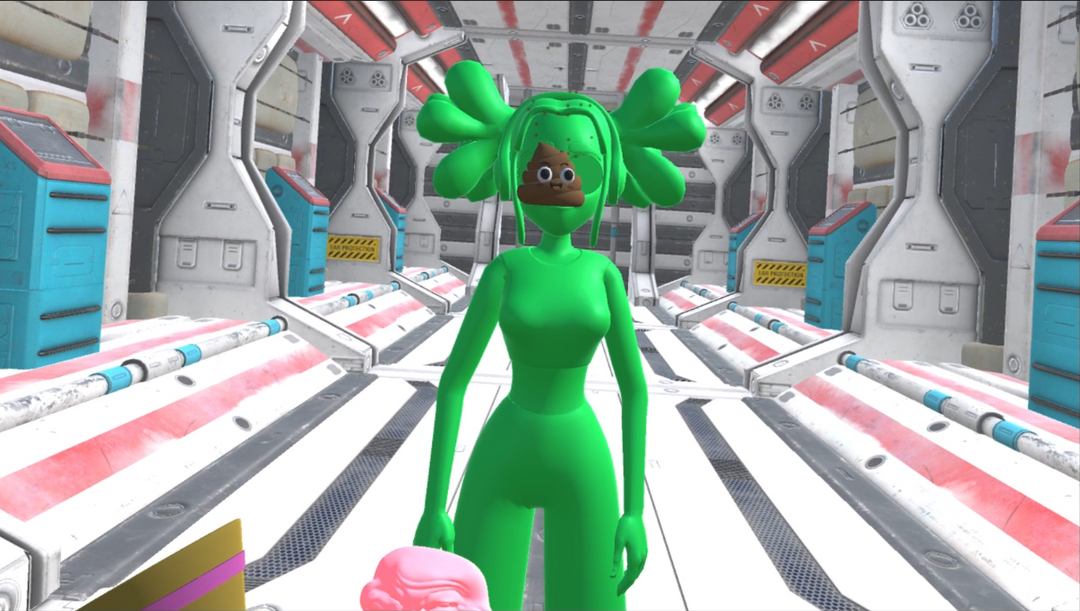
XpRessions
Exploring Communication in VR
XpRessions is a VR prototype that reimagines how people can communicate in immersive environments through expressive, gesture-driven 3D emojis. The system allows users to quickly select, throw, and share animated emojis in real time, turning flat reactions into playful, spatial interactions.
The goal: make emotional expression in VR feel intuitive, magical, and fun—a communication system as fast as sending an emoji but amplified by the presence and depth of virtual space.
Context & Problem
The Limits of Expression in VR/AR
Emerging XR interactions often default to slow, text-based input—like aiming at virtual keyboards—which breaks immersion.
We asked:
- How can we surface expressive communication in XR in a natural and delightful way?
- What if sharing emotions in VR were as instant and intuitive as tapping an emoji, but real-time and spatial?
Our insight: 3D emojis in a VR space could carry emotional impact and foster richer connection than flat text or icons.
My Role
UX Designer, Developer, and Sound Designer
April 2022 - June 2022
Team
Myself + 5 other designers
Tools
Unity, Meta Quest
Discovery & Research
Looking into VIdeo Game Communication
We prototyped different inputs for XR expression and discovered traditional VR typing was tedious. Shifting focus, we brainstormed gesture-based emoji systems inspired by multiplayer games like League of Legends. Our research revealed two key insights:
- Shared physical space in VR allowed for immediate emotional reactions.
- 3D animations could elevate the meaning and feeling of emojis.
From there, we set a goal: make sending visual expressions “magical, intuitive, and lightning-fast.”
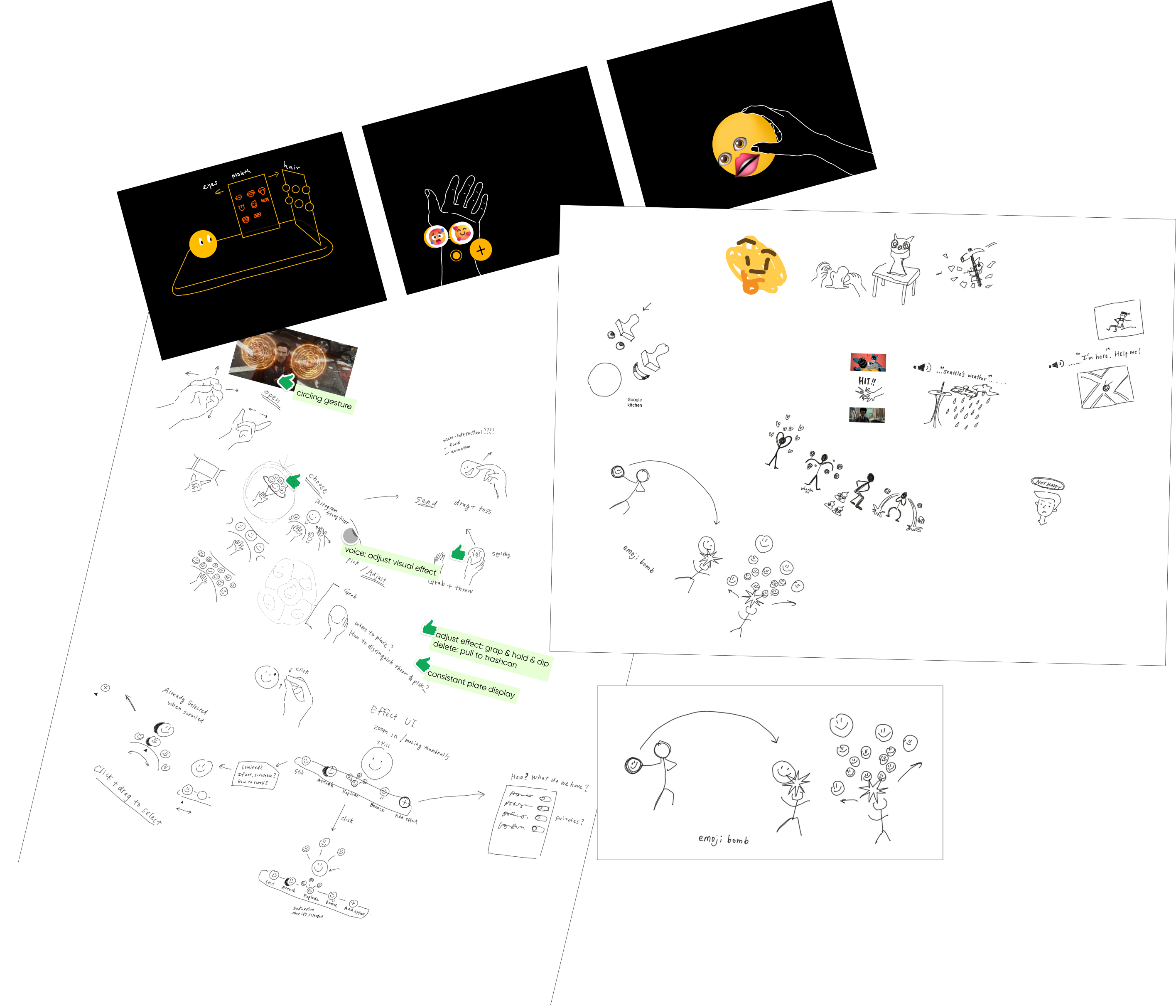
Design & Prototyping
Making Emojis Spatial
We developed a gesture-activated VR emoji menu using Unity, inspired by emote wheels in multiplayer games. This allowed users to load a set of expressions into a quick-launch plate for live use, keeping communication fast and fluid. The system supported both preset icons and custom asset imports, giving players the freedom to personalize their reactions. To enhance delight, we emphasized the visual flair of each emoji with playful animations—crying faces, confetti bursts, troll faces, and pranks—that made expression in VR feel spontaneous and fun.

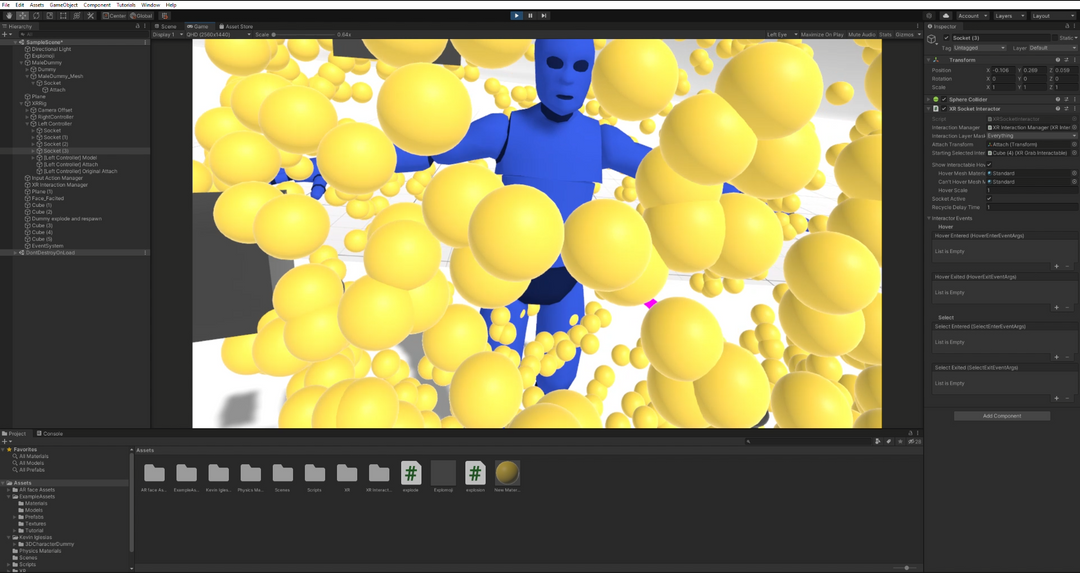
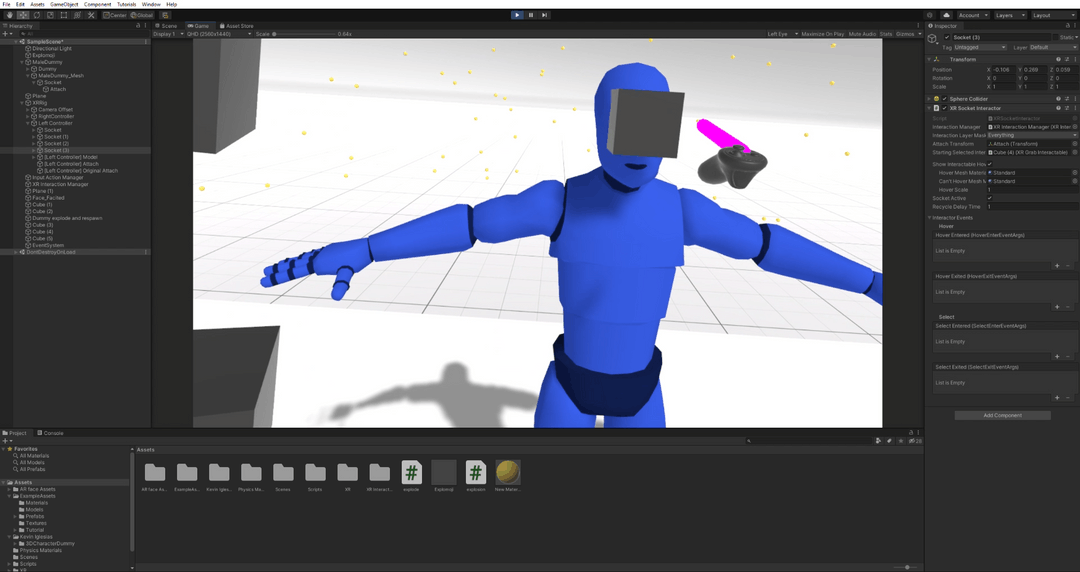
Final Design
Bringing Expressions to Life
The final prototype delivered a sleek VR experience where players could grab and throw expressive 3D emojis into space. Playtesting revealed that users loved the “magical” feel of these interactions—throwing a confetti explosion or crying face felt intuitive, impactful, and unlike any flat emoji experience. The system struck a balance between familiarity, borrowing from game emote mechanics, and novelty, leveraging VR’s depth and motion. We captured the experience in a polished video prototype, which dramatized four key use cases: custom imports, playful pranks, emotional reactions, and celebratory moments.
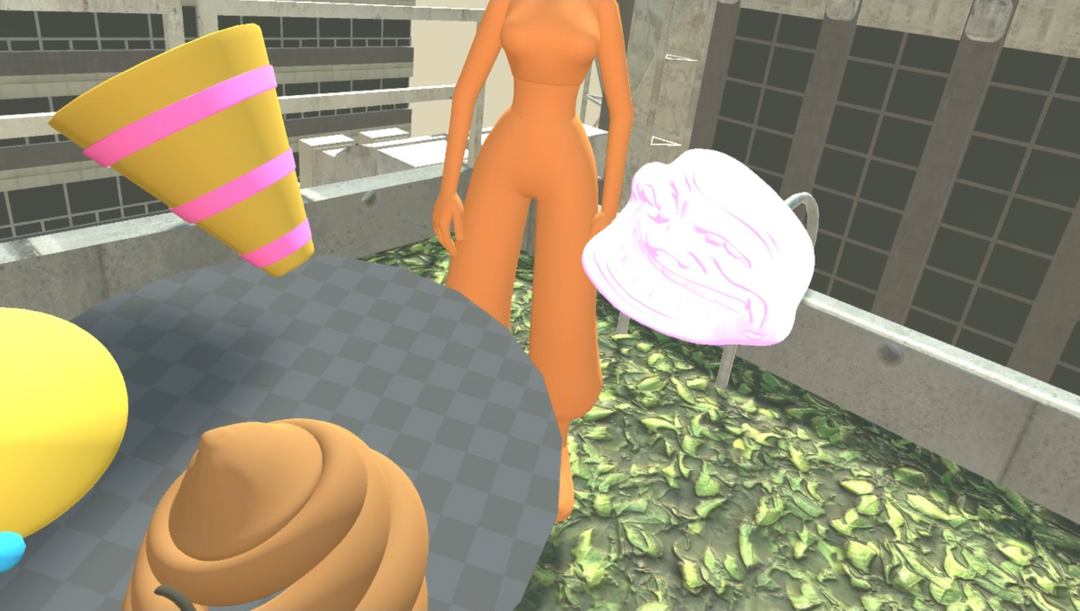
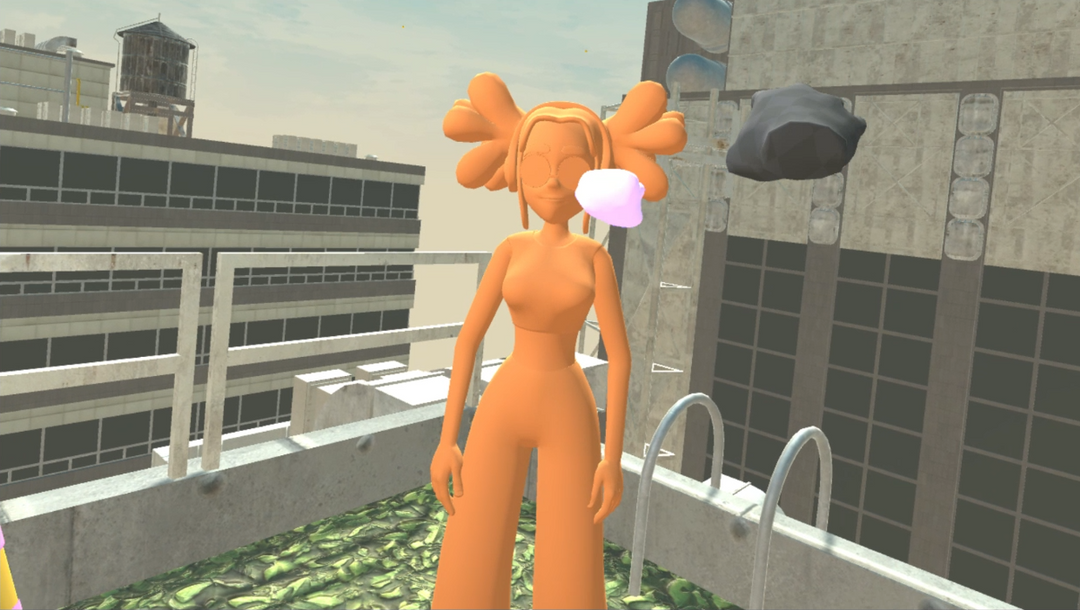
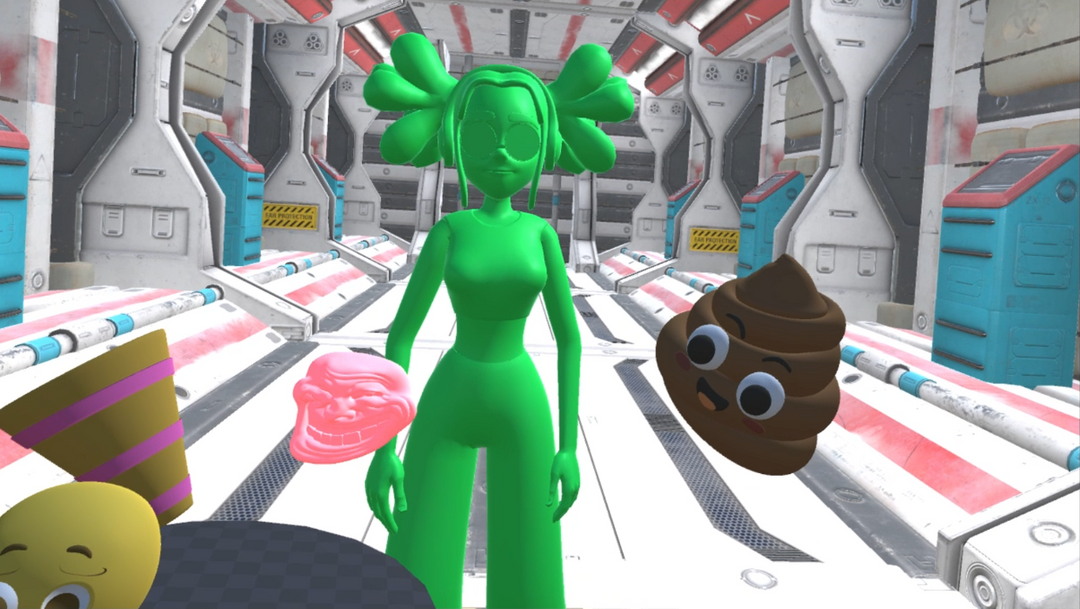
Reflection & Learnings
Simplicity is the Magic
Through this project, I learned that the magic of XR interactions lies in simplicity: fast, gestural input makes communication spontaneous and fun. Prototyping directly in Unity was invaluable, as it allowed us to test mechanics quickly and iterate based on excitement rather than assumption. We also realized the potential to build a broader visual language beyond emojis—something that could scale across VR chat, multiplayer games, or social XR platforms. A more robust gesture system could further enable rich, expressive communication, expanding the foundation laid by XPressions.
Back to Home

XpRessions
Exploring Communication in VR
XpRessions is a VR prototype that reimagines how people can communicate in immersive environments through expressive, gesture-driven 3D emojis. The system allows users to quickly select, throw, and share animated emojis in real time, turning flat reactions into playful, spatial interactions.
The goal: make emotional expression in VR feel intuitive, magical, and fun—a communication system as fast as sending an emoji but amplified by the presence and depth of virtual space.
Context & Problem
The Limits of Expression in VR/AR
Emerging XR interactions often default to slow, text-based input—like aiming at virtual keyboards—which breaks immersion.
We asked:
- How can we surface expressive communication in XR in a natural and delightful way?
- What if sharing emotions in VR were as instant and intuitive as tapping an emoji, but real-time and spatial?
Our insight: 3D emojis in a VR space could carry emotional impact and foster richer connection than flat text or icons.
My Role
UX Designer, Developer, and Sound Designer
April 2022 - June 2022
Team
Myself + 5 other designers
Tools
Unity, Meta Quest
Discovery & Research
Looking into VIdeo Game Communication
We prototyped different inputs for XR expression and discovered traditional VR typing was tedious. Shifting focus, we brainstormed gesture-based emoji systems inspired by multiplayer games like League of Legends. Our research revealed two key insights:
- Shared physical space in VR allowed for immediate emotional reactions.
- 3D animations could elevate the meaning and feeling of emojis.
From there, we set a goal: make sending visual expressions “magical, intuitive, and lightning-fast.”

Design & Prototyping
Making Emojis Spatial
We developed a gesture-activated VR emoji menu using Unity, inspired by emote wheels in multiplayer games. This allowed users to load a set of expressions into a quick-launch plate for live use, keeping communication fast and fluid. The system supported both preset icons and custom asset imports, giving players the freedom to personalize their reactions. To enhance delight, we emphasized the visual flair of each emoji with playful animations—crying faces, confetti bursts, troll faces, and pranks—that made expression in VR feel spontaneous and fun.



Final Design
Bringing Expressions to Life
The final prototype delivered a sleek VR experience where players could grab and throw expressive 3D emojis into space. Playtesting revealed that users loved the “magical” feel of these interactions—throwing a confetti explosion or crying face felt intuitive, impactful, and unlike any flat emoji experience. The system struck a balance between familiarity, borrowing from game emote mechanics, and novelty, leveraging VR’s depth and motion. We captured the experience in a polished video prototype, which dramatized four key use cases: custom imports, playful pranks, emotional reactions, and celebratory moments.



Reflection & Learnings
Simplicity is the Magic
Through this project, I learned that the magic of XR interactions lies in simplicity: fast, gestural input makes communication spontaneous and fun. Prototyping directly in Unity was invaluable, as it allowed us to test mechanics quickly and iterate based on excitement rather than assumption. We also realized the potential to build a broader visual language beyond emojis—something that could scale across VR chat, multiplayer games, or social XR platforms. A more robust gesture system could further enable rich, expressive communication, expanding the foundation laid by XPressions.
Back to Home

XpRessions
Exploring Communication in VR
XpRessions is a VR prototype that reimagines how people can communicate in immersive environments through expressive, gesture-driven 3D emojis. The system allows users to quickly select, throw, and share animated emojis in real time, turning flat reactions into playful, spatial interactions.
The goal: make emotional expression in VR feel intuitive, magical, and fun—a communication system as fast as sending an emoji but amplified by the presence and depth of virtual space.
Context & Problem
The Limits of Expression in VR/AR
Emerging XR interactions often default to slow, text-based input—like aiming at virtual keyboards—which breaks immersion.
We asked:
- How can we surface expressive communication in XR in a natural and delightful way?
- What if sharing emotions in VR were as instant and intuitive as tapping an emoji, but real-time and spatial?
Our insight: 3D emojis in a VR space could carry emotional impact and foster richer connection than flat text or icons.
My Role
VR/UX Designer & Prototyper
March 2022
Team
Myself + 5 other designers
Tools
Unity, Meta Quest
Discovery & Research
Looking into VIdeo Game Communication
We prototyped different inputs for XR expression and discovered traditional VR typing was tedious. Shifting focus, we brainstormed gesture-based emoji systems inspired by multiplayer games like League of Legends. Our research revealed two key insights:
- Shared physical space in VR allowed for immediate emotional reactions.
- 3D animations could elevate the meaning and feeling of emojis.
From there, we set a goal: make sending visual expressions “magical, intuitive, and lightning-fast.”

Design & Prototyping
Making Emojis Spatial
We developed a gesture-activated VR emoji menu using Unity, inspired by emote wheels in multiplayer games. This allowed users to load a set of expressions into a quick-launch plate for live use, keeping communication fast and fluid. The system supported both preset icons and custom asset imports, giving players the freedom to personalize their reactions. To enhance delight, we emphasized the visual flair of each emoji with playful animations—crying faces, confetti bursts, troll faces, and pranks—that made expression in VR feel spontaneous and fun.



Final Design
Bringing Expressions to Life
The final prototype delivered a sleek VR experience where players could grab and throw expressive 3D emojis into space. Playtesting revealed that users loved the “magical” feel of these interactions—throwing a confetti explosion or crying face felt intuitive, impactful, and unlike any flat emoji experience. The system struck a balance between familiarity, borrowing from game emote mechanics, and novelty, leveraging VR’s depth and motion. We captured the experience in a polished video prototype, which dramatized four key use cases: custom imports, playful pranks, emotional reactions, and celebratory moments.




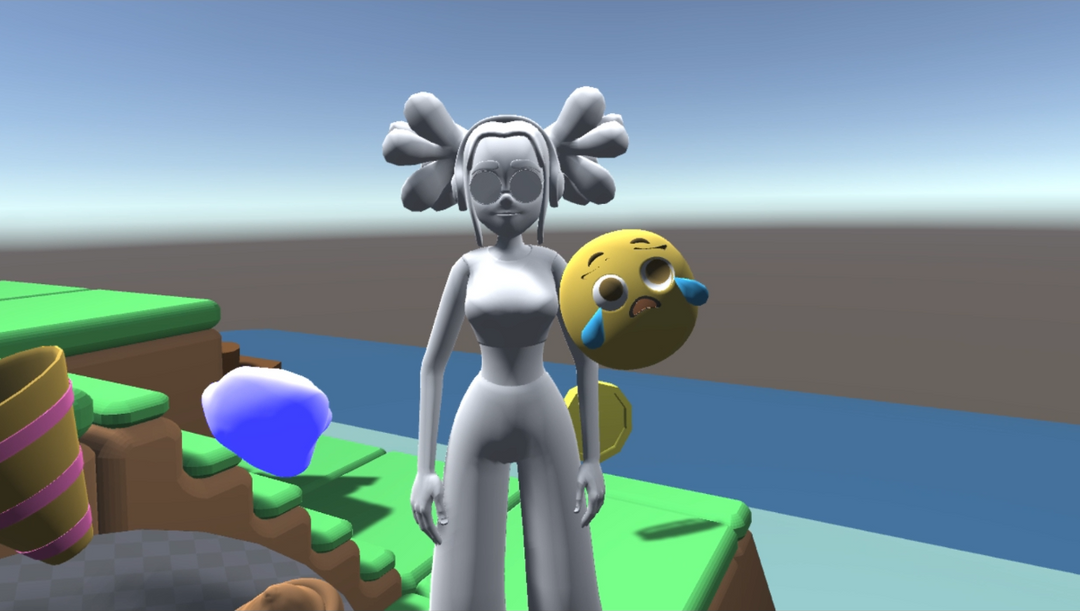
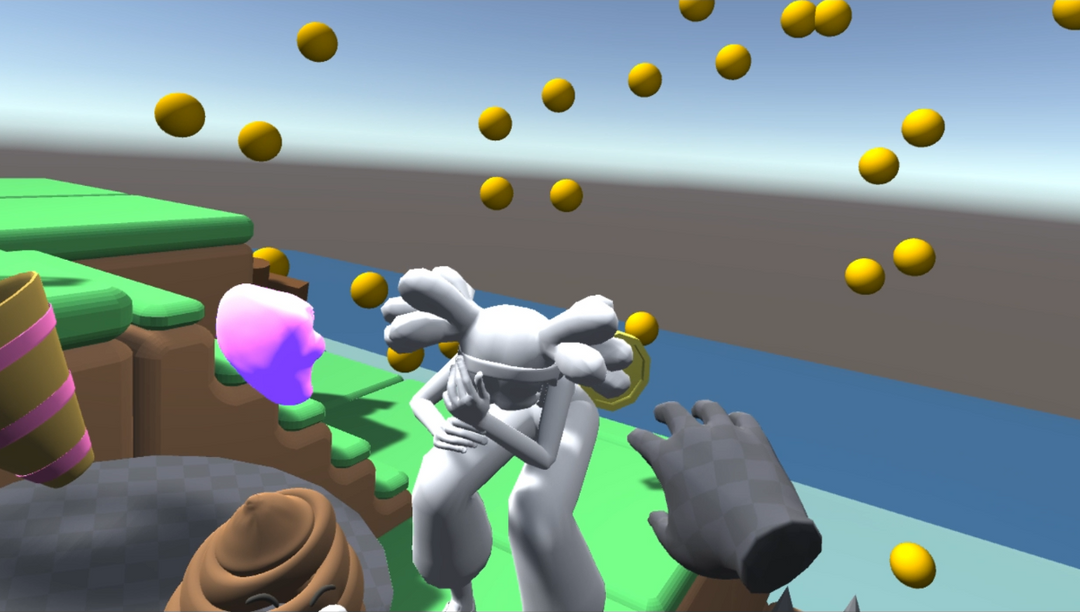
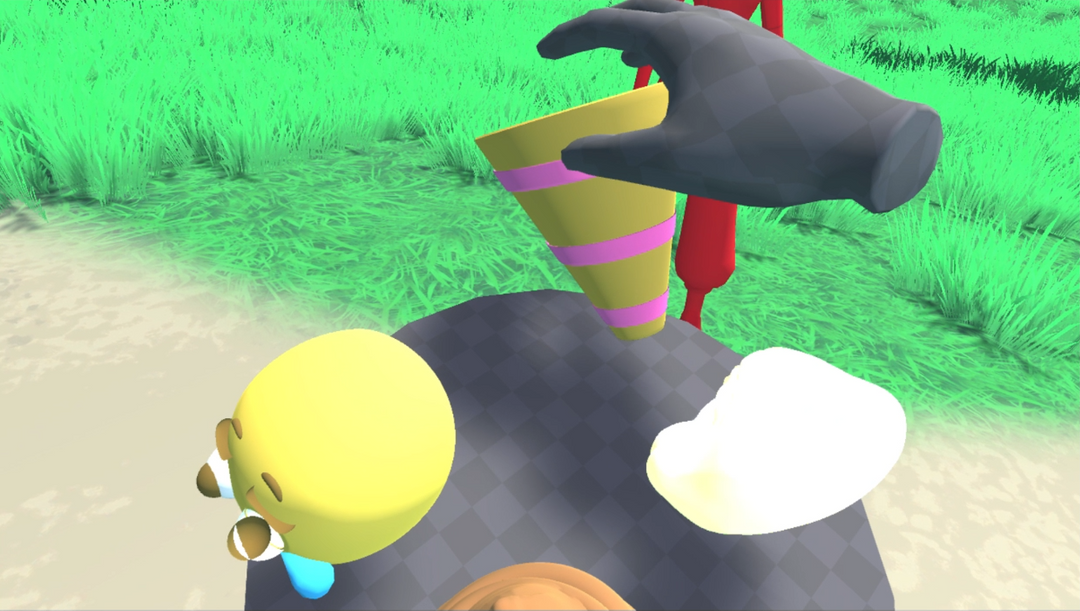
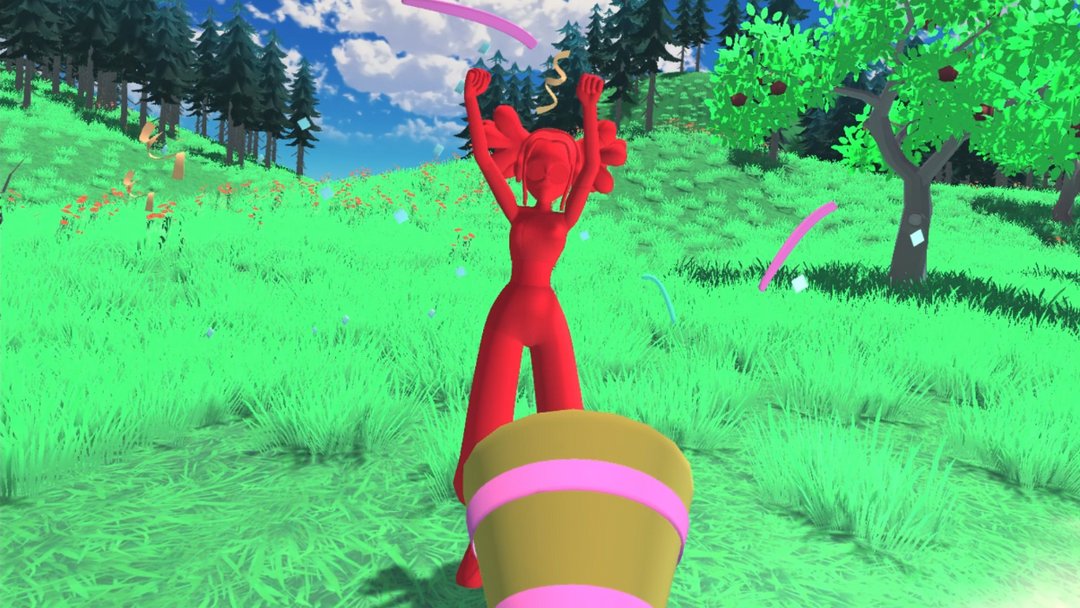
Reflection & Learnings
Simplicity is the Magic
Through this project, I learned that the magic of XR interactions lies in simplicity: fast, gestural input makes communication spontaneous and fun. Prototyping directly in Unity was invaluable, as it allowed us to test mechanics quickly and iterate based on excitement rather than assumption. We also realized the potential to build a broader visual language beyond emojis—something that could scale across VR chat, multiplayer games, or social XR platforms. A more robust gesture system could further enable rich, expressive communication, expanding the foundation laid by XPressions.